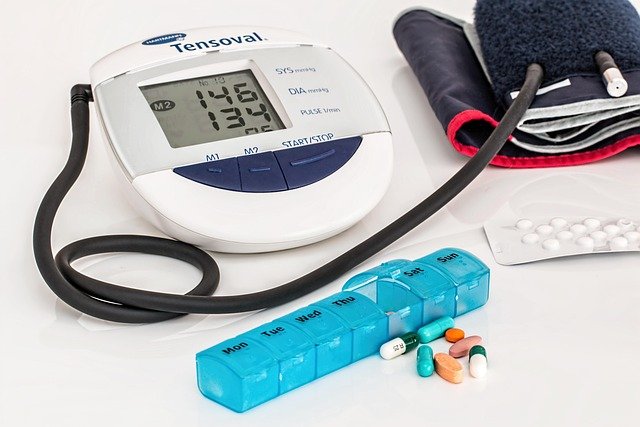Atrial Fibrillation: Medications to Avoid and Safe Practices
Managing atrial fibrillation (AFib) means making smart choices about medications—both prescription and over-the-counter options. The wrong medicines can increase your risk of AFib episodes or interfere with your treatment plan. This guide explains which medications to avoid with AFib, why they matter, and how to protect your heart through safer daily decisions.

What Is Atrial Fibrillation?
Atrial fibrillation, commonly abbreviated as AFib, is an irregular heart rhythm characterized by rapid and disorganized electrical signals in the upper chambers of the heart (atria). This causes the atria to quiver instead of contracting effectively, potentially allowing blood to pool and increasing the risk of clot formation. These clots can travel to the brain and cause a stroke, making AFib a significant risk factor for stroke. The condition affects approximately 2.7-6.1 million Americans, with prevalence increasing with age.
AFib can present as occasional episodes that resolve on their own (paroxysmal), persistent episodes requiring treatment to restore normal rhythm, or permanent AFib where the heart’s rhythm cannot be restored. Symptoms may include heart palpitations, weakness, fatigue, dizziness, shortness of breath, and chest pain, though some people experience no symptoms at all.
Why Medication Choices Matter
For those with atrial fibrillation, medication choices carry particular significance beyond merely treating symptoms. The pharmacological approach to AFib typically involves medications aimed at controlling heart rate, maintaining normal rhythm, and preventing blood clots that could lead to stroke. However, introducing new medications—whether prescription or over-the-counter—can potentially disrupt this delicate balance.
Some medications can interact with AFib treatments, reducing their effectiveness or increasing the risk of side effects. Others might directly trigger or worsen AFib episodes by affecting the heart’s electrical system. Additionally, certain drugs can increase bleeding risk in patients taking anticoagulants (blood thinners), which are commonly prescribed for AFib patients to prevent stroke. Understanding these potential interactions is crucial for both healthcare providers and patients in developing a safe and effective treatment plan.
Why Avoiding Certain Medications Is Important
Patients with atrial fibrillation must be particularly vigilant about medication choices because inappropriate medications can trigger arrhythmias, exacerbate existing heart rhythm problems, or interfere with prescribed AFib treatments. Some medications can increase heart rate or blood pressure, placing additional strain on an already compromised cardiovascular system. Others may alter the electrical properties of heart tissue, potentially triggering new episodes of AFib or making existing episodes more difficult to control.
For patients taking anticoagulants like warfarin, certain medications can significantly alter the medication’s effectiveness by either increasing or decreasing its blood-thinning properties. If the anticoagulant effect becomes too strong, dangerous bleeding may occur; if too weak, the stroke protection is compromised. Additionally, some medications can affect electrolyte levels in the blood, particularly potassium, which plays a crucial role in maintaining normal heart rhythm. Even seemingly harmless supplements can sometimes contain ingredients that affect heart rhythm or interact with prescribed medications.
Common Medications and Supplements to Watch Out For
Several categories of medications warrant special attention from AFib patients. Stimulants, including certain cold and allergy medications containing pseudoephedrine or phenylephrine, can increase heart rate and potentially trigger AFib episodes. These ingredients are found in many over-the-counter decongestants and should be approached with caution.
Non-steroidal anti-inflammatory drugs (NSAIDs) like ibuprofen and naproxen can increase blood pressure and may interact with anticoagulants, increasing bleeding risk. They can also reduce the effectiveness of certain blood pressure medications often prescribed to AFib patients. Some patients may need to opt for acetaminophen instead, though this should be discussed with a healthcare provider.
Herbal supplements and natural remedies also require scrutiny. St. John’s wort can reduce the effectiveness of several medications including certain antiarrhythmics and anticoagulants. Ginseng and ginkgo biloba may increase bleeding risk when combined with anticoagulants. Even seemingly benign supplements like fish oil, garlic, and vitamin E can potentially increase bleeding risk when taken in high doses alongside anticoagulants.
Certain antibiotics, antifungal medications, and psychiatric drugs can prolong the QT interval—a measurement of heart electrical activity—potentially leading to dangerous arrhythmias. These include specific antibiotics like azithromycin and levofloxacin, antipsychotics like haloperidol, and some antidepressants.
The Risks of Stopping Medications Abruptly
Discontinuing medications suddenly, especially those prescribed for atrial fibrillation management, can lead to serious complications. Abruptly stopping beta-blockers or calcium channel blockers, which control heart rate, may cause a dangerous rebound effect with increased heart rate and blood pressure, potentially triggering severe AFib episodes or even heart attacks.
Similarly, suddenly discontinuing antiarrhythmic medications can precipitate serious rhythm disturbances. For patients taking anticoagulants, stopping these medications without medical supervision significantly increases stroke risk—one of the most serious complications of atrial fibrillation. The risk peaks within the first month after discontinuation.
Even adjusting medication timing or dosage without guidance can disrupt the careful balance established for managing the condition. This is why any changes to medication regimens should always be discussed with and supervised by a healthcare provider. If side effects or concerns arise with current medications, patients should contact their healthcare provider to discuss alternatives rather than making independent decisions about their treatment.
Safe Medication Practices for AFib Patients
Developing safe medication habits is essential for those managing atrial fibrillation. Always maintain an updated list of all medications, supplements, and over-the-counter drugs you take, and share this list with all healthcare providers involved in your care. Before starting any new medication or supplement, consult with your cardiologist or primary care physician to check for potential interactions with your AFib treatment.
When visiting pharmacies, use the same pharmacy consistently when possible, as their system can help identify potential drug interactions. Inform pharmacists about your condition and all medications you take. Consider requesting medication reviews periodically with your healthcare provider to reassess your entire medication regimen for continued appropriateness and potential simplification.
For emergency situations, wear a medical alert bracelet or carry information about your condition and medications. Digital health apps can help track medications and provide reminders for doses, helping to maintain the consistent medication schedule that’s often crucial for AFib management.
This article is for informational purposes only and should not be considered medical advice. Please consult a qualified healthcare professional for personalized guidance and treatment.




